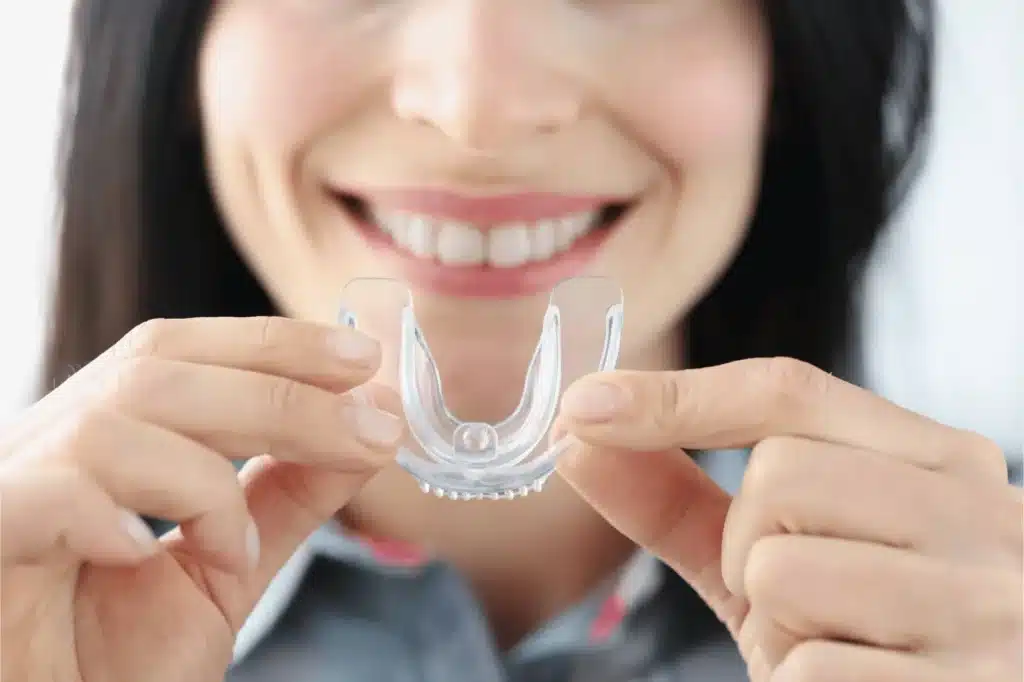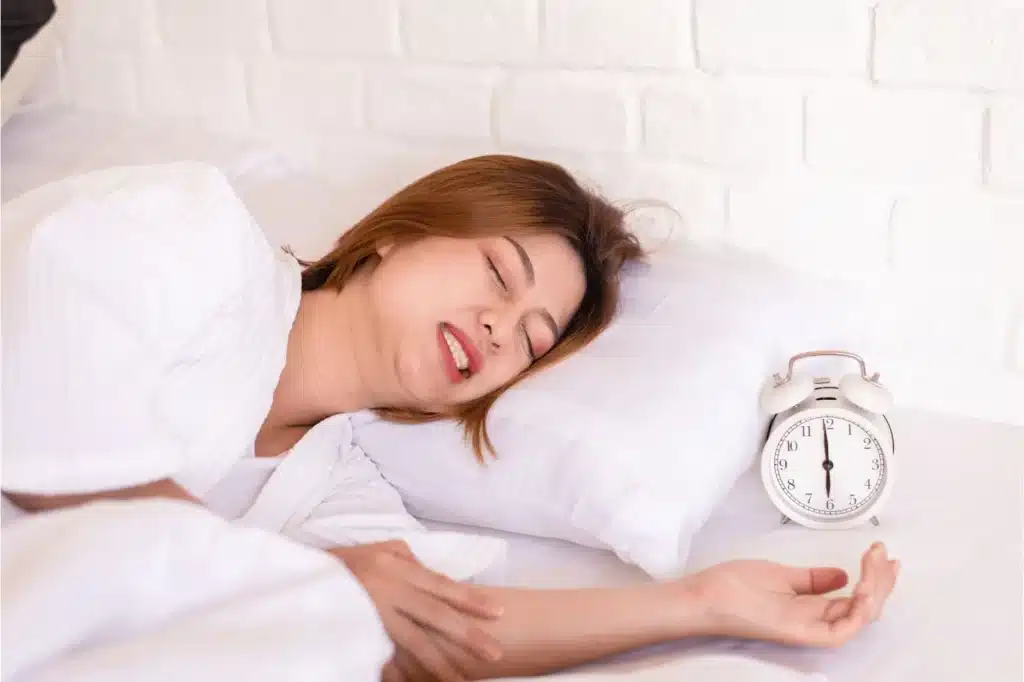Do you grind your teeth regularly? You might have bruxism. It can harm your teeth and jaws. Read more to know about bruxism.
What is Bruxism?
People often grind or clench their teeth, which is not a big deal. But if you do it regularly, it’s called bruxism, and it can cause problems for your:
- Jaw muscles.
- Teeth.
- Temporomandibular joints (TMJs) connect your jaw to your skull and let you open and close your mouth.
Types
Teeth grinding are two types:
Awake bruxism
It is when you clench your jaw and grind your teeth during the day. It’s often linked to emotions like stress, anxiety, or anger. Sometimes, it happens when you’re really focused on something. You might notice it and can try to stop. Managing stress and being more aware of it can help reduce how often it occurs.
Sleep bruxism
It happens when you grind your teeth while asleep, which can be more harmful. The problem is that you might not even know it’s happening because you’re asleep. People with sleep bruxism often don’t realize how hard they’re clenching their jaw and teeth. They can use much force, up to 250 pounds, leading to jaw pain, teeth issues, and headaches.
Symptoms
Teeth grinding or clenching, can show these signs:
- Grinding or clenching your teeth might be loud enough to wake up someone sleeping next to you.
- Teeth that are flattened, broken, chipped, or loose.
- Worn tooth enamel, showing the deeper layers of your tooth.
- More tooth pain or sensitivity.
- Feeling tired, having tight jaw muscles, or having a jaw that won’t open or close all the way.
- Pain in your jaw, neck, or face, or feeling sore in those areas.
- Having pain that seems like an earache, even though your ear is okay.
- Getting a dull headache that starts in your temples.
- Harming the inside of your cheek from chewing.
- Disturbed sleep.

Causes
Many things can lead to severe teeth grinding, including:
Lifestyle Habits
Doing things like drinking alcohol, smoking, using drugs for fun, and having lots of caffeine (more than six cups of coffee daily) can cause teeth grinding. People who drink and smoke are twice as likely to grind their teeth as those who don’t.
Sleep Problems
Having trouble sleeping can also be a cause of teeth grinding.
Stress and Worry
Feeling stressed or anxious can make you grind your teeth.
Medications
Certain drugs, especially anti-anxiety medicine called selective serotonin reuptake inhibitors (SSRIs), can also lead to bruxism.
Risk Factors
Certain things can make you more likely to have severe teeth grinding:
Stress: Feeling anxious or stressed can lead to teeth grinding. It can also be triggered by anger and frustration.
Age: Teeth grinding is common in young kids but usually disappears as they grow up.
Personality Type: If you have a personality that’s aggressive, competitive, or hyperactive, you might be at a higher risk of severe teeth grinding.
Medications and Substances: Some medicines used for mental health, like certain antidepressants, can have teeth grinding as a rare side effect. Smoking, drinking caffeinated drinks or alcohol, or using recreational drugs may also increase the risk of teeth grinding.
Family History: If someone in your family has bruxism, there’s a chance you might have it or have a history of it, too, especially the kind that happens during sleep.
Other Health Issues: Teethgrinding can be linked to certain mental health and medical problems, like Parkinson’s disease, dementia, acid reflux (GERD), epilepsy, night terrors, sleep problems like sleep apnea, and attention-deficit/hyperactivity disorder (ADHD).
Treatment
There are no medicines to stop teeth grinding. Your dentist might give you a night guard, which is a custom-made device you wear in your mouth before sleeping. It shields your teeth, muscles, and jaw joints from the pressure grinding creates. Your healthcare provider might also prescribe a muscle relaxant to take before bedtime.

How To Stop Teeth Grinding?
Your dentist might check your medications to see if any of them are causing teeth grinding. Stress could also play a part. You can talk to your healthcare provider about ways to reduce stress, such as:
- Cognitive behavioral therapy (CBT), which is a type of talk therapy that can help reduce stress
- Exercise
- Meditation
- Physical therapy
Other ways to reduce teeth grinding include:
- Avoiding alcohol and smoking.
- Cutting down on or avoiding foods and drinks with caffeine, like colas, chocolate, and coffee.
- Being aware of teeth clenching during the day and trying to stop it by keeping your lips together, teeth apart, and your tongue behind your front teeth.
- Not chewing on non-food items like pencils or pens and avoiding chewing gum all the time.
Prevention
To prevent teeth grinding:
- Avoid cigarettes, drugs, and alcohol, as they can worsen sleep teeth grinding.
- Get regular checkups with your dentist. They can treat problems caused by teeth grinding early, so you can avoid long-term damage.
- Treat any other dental problems, like misaligned or missing teeth.
Conclusion
The blog guides you on bruxism and how it can damage oral health. Always notice the symptoms and consult your dentist for suitable treatments. Contact Dentalsway for more information. We are here to help you maintain your dental health.


